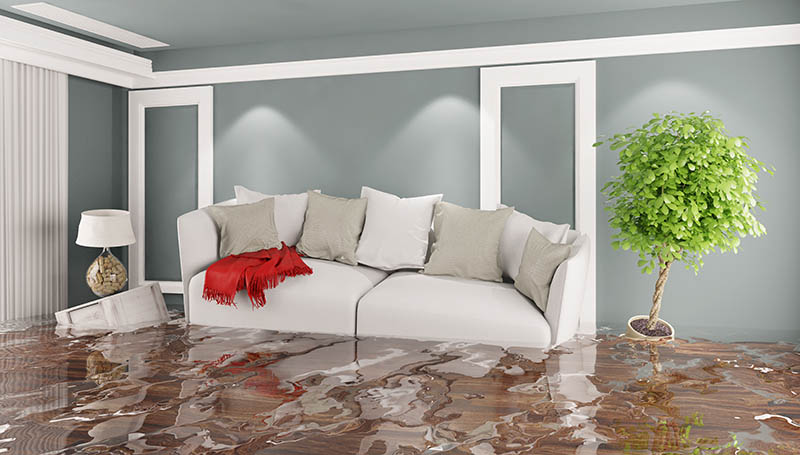The Residential Common Typical Factors of Water Leaks: Detailed Examination
The Residential Common Typical Factors of Water Leaks: Detailed Examination
Blog Article
We've stumbled upon this post involving Top Causes of Home Water Leaks below on the net and figured it made sense to relate it with you over here.

Leaks not just trigger waste of water but can also cause unneeded damages to your house and advertise undesirable natural growth. Water leakages might go undetected because most of the pipework in our home is hidden. By looking and also comprehending for day-to-day scenarios that trigger leaks, you can protect your home from future leakages and also unnecessary damage. Today, we will certainly look at 6 leakage causes that may be triggering your pipelines to trickle.
Trespassing origins
Many water leaks start outside your home rather than inside it. If you discover an unexpected decline in water pressure, state in your tap, take some time to head out and also examine your backyard. You might discover damp patches or sinkholes in your backyard, and that could indicate that tree roots are getting into water lines triggering water to seep out. You can have your plumber look for breach, specifically if you have trees or hedges near your residential property.
Rusty water supply
This might be the reason of discoloration or bending on your water pipes. If our plumbing system is old, consider replacing the pipelines considering that they are at a greater danger of deterioration than the newer designs.
Malfunctioning Pipe Joints
The factor at which your pipes link is regularly the weakest link in the waterline. Pipe joints can wear away in time, leading to water leakages. Unfortunately, the majority of pipe joints are not conveniently visible. If you have noisy pipes that make ticking or banging noises, especially when the hot water is switched on, your pipe joints are most likely under a lot of pressure. It is a good idea to have your plumber examine your system yearly.
Immediate temperature changes.
Extreme temperature level adjustments in our pipes can trigger them to increase and also get unexpectedly. This expansion and contraction may create cracks in the pipes, especially if the temperature are below cold.
Poor Water Connectors
At times, a leak can be created by loose tubes and pipelines that provide your devices. In situation of a water links leak, you might see water running directly from the supply line or pools around your devices.
Clogged Drains
Blocked drains pipes could be aggravating and inconveniencing, but they can often wind up causing an overflow resulting in rupture pipelines. Maintain getting rid of any kind of products that might decrease your drains that can obstruct them to stay clear of such aggravations.
All the above are causes of leaks yet not all water leakages arise from plumbing leaks; some leaks might originate from roof leakages. All leakages ought to be repaired immediately to stay clear of water damages.
Leaks not just trigger waste of water but can also cause unneeded damage to your residence as well as promote undesirable organic development. By recognizing and looking for day-to-day situations that trigger leakages, you can safeguard your residence from future leaks as well as unnecessary damage. Today, we will certainly look at 6 leak triggers that might be causing your pipes to leak.
At times, a leakage can be created by loose pipes and also pipes that supply your home appliances. In situation of a water links leakage, you might notice water running directly from the supply line or puddles around your home appliances.
How To Check For Water Leak In Your Home
How To Check for Leaks
The average household's leaks can account for nearly 10,000 gallons of water wasted every year and ten percent of homes have leaks that waste 90 gallons or more per day. Common types of leaks found in the home are worn toilet flappers, dripping faucets, and other leaking valves. These types of leaks are often easy to fix, requiring only a few tools and hardware that can pay for themselves in water savings. Fixing easily corrected household water leaks can save homeowners about 10 percent on their water bills.
To check for leaks in your home, you first need to determine whether you're wasting water and then identify the source of the leak. Here are some tips for finding leaks:
Take a look at your water usage during a colder month, such as January or February. If a family of four exceeds 12,000 gallons per month, there are serious leaks.
Check your water meter before and after a two-hour period when no water is being used. If the meter changes at all, you probably have a leak.
Identify toilet leaks by placing a drop of food coloring in the toilet tank. If any color shows up in the bowl after 10 minutes, you have a leak. (Be sure to flush immediately after the experiment to avoid staining the tank.)
Examine faucet gaskets and pipe fittings for any water on the outside of the pipe to check for surface leaks.
Undetected water leaks can happen without the home or business owner even realizing. If you suspect a water leak, but not able to find the source. It is time to contact a professional water leak detection service, The Leak Doctor.
How To Find a Water Leak In Your Home
https://www.leakdoctor.com/blog/How-To-Check-For-Water-Leak-In-Your-Home_AE197.html

As a devoted reader about How Fast Water Damage Can Ruin Your Home, I imagined sharing that information was essential. I beg you take a moment to promote this blog post if you appreciated it. Thank-you for going through it.
Real results? Dial! Report this page